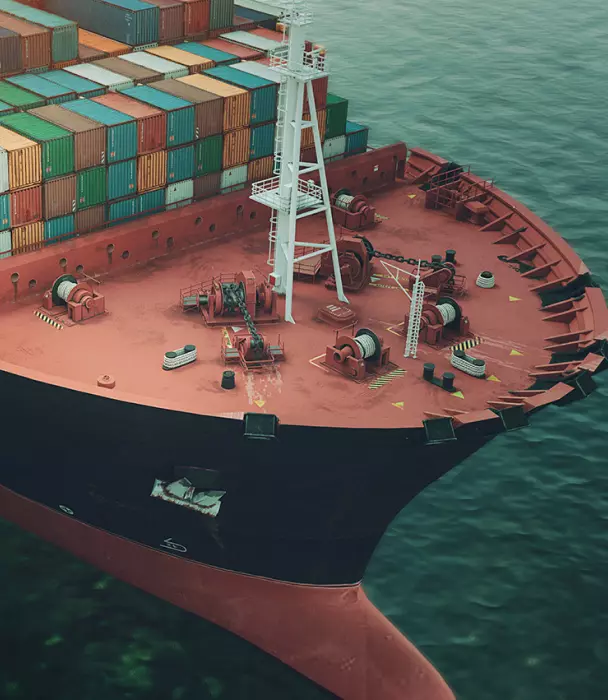Introduction
Whether you’re shipping across the country or halfway around the world, you’ll need to arrange ocean transportation at some point. This can be a complicated process, especially if you don’t have experience with international shipping. In this post we’ll go over what an NVOCC and freight forwarder are, their differences, and when each would be useful in your business operations.
What is an NVOCC?
NVOCC stands for “non-vessel operating common carrier.” An NVOCC is an ocean carrier, providing transportation services almost exactly like a steamship line—but unlike most of them, the NVOCC does not own or operate its own ships—it just sources space on cargo vessels from other carriers and resells it to customers.
If you have ever booked transportation through a freight forwarder or logistics company like us here at Transplace, then you may have ended up booking with an NVOCC as well.
The difference between an NVOCC and other freight companies (such as freight forwarders or logistics companies) lies in their business model. While they both offer similar services (i.e., booking transportation), the way they go about doing so is different:
What is a Freight Forwarder?
A freight forwarder is an agent that arranges for the movement of cargo from one place to another. They are not a carrier and do not own any assets, but they take responsibility for the paperwork, customs clearance and logistics for their customers. Freight forwarders work with carriers (e.g., airlines) to arrange transportation for their customers.
Some companies may also be called freight brokers or freight agents
Are an NVOCC and a freight forwarder the same thing?
While NVOCC and freight forwarder are often used interchangeably, they're not the same thing. They do share some similarities, though: both provide ocean transportation services and are involved in the shipping process. However, as you may have guessed from their names (NVOCC stands for "non-vessel operating common carrier"), NVOCCs are ocean carriers whereas freight forwarders are logistics companies.
To put it another way: NVOCCs own ships and containers; freight forwarders do not. This means that an NVOCC can provide its clients with door-to-door service throughout the entire shipping process (from picking up a shipment at one location to delivering it at another), but a freight forwarder must work with a third party—the actual shipper or carrier—in order to arrange pick-up/delivery of goods on behalf of its client(s).
How do I choose between them?
When it comes to choosing between NVOCCs and freight forwarders, the most important thing is that you choose the one that best meets your needs. If you want cheaper rates but don't need much in the way of services, an NVOCC may be a good choice for you. Conversely, if price isn't much of an issue and you need a lot of services, then a freight forwarder might be more suitable. You can also choose a mix of both; some companies offer their own shipping rates through an NVOCC while also taking advantage of other companies' lower prices when booking shipments through them.
Both NVOCCs and freight forwarders can help you arrange ocean transportation, but they each do it differently. It’s important to understand their differences before deciding which one to use.
Both NVOCCs and freight forwarders can help you arrange ocean transportation, but they each do it differently. It's important to understand their differences before deciding which one to use.
NVOCCs are not carriers, they are agents. When you hire them, they will arrange ocean transportation for your cargo with a carrier on your behalf. They don't own any trucks or ships—they just act as an intermediary between you and the actual carriers (the people who drive the trucks or sail the ships).
By contrast, freight forwarders are agents whose services extend beyond arranging shipments by ocean transportation; they also handle customs clearance documents, packaging materials and sometimes insurance requirements for domestic shipments too (although most large companies have their own insurance policies that cover domestic transit).
Conclusion
We hope this post has helped clarify some of the differences between freight forwarders and NVOCCs. If you still have questions, feel free to reach out! We’re more than happy to answer any questions you may have about the services we provide or help you choose which one will work best for your business.


